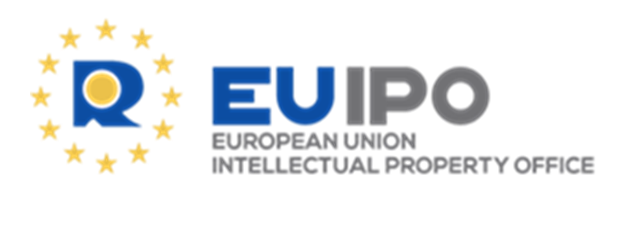- 80% of Europeans agree that counterfeits support criminal organizations and ruin businesses and jobs. Two out of three also consider fakes a threat to health, safety, and the environment.
- However, a third of Europeans find it acceptable to buy fakes when the price of the genuine product is too high. The proportion rises to half when it comes to young people.
- Uncertainty: Four in 10 consumers were unsure if a product was genuine or not, while 13% report having bought fakes intentionally.
- Online piracy: 14% of Europeans admit to having accessed content illegally, especially to watch sports. This rises to one-third in the case of young people.
- Going legal: 43% of Europeans have paid to access content from a legal source in the past year.
Europeans are increasingly aware of the risks and consequences of buying counterfeits and accessing content from illegal sources, according to a new study on the perception of citizens towards intellectual property published today by the European Union Intellectual Property Office (EUIPO).
80% of Europeans believe that criminal organizations are behind counterfeit products and consider that buying counterfeits ruins businesses and jobs. 83% of respondents also believe that it supports unethical behavior and two-thirds see it as a threat to health and safety and to the environment.
In terms of piracy, 82% of Europeans agree that obtaining digital content through illegal sources entails a risk of harmful practices (scams or inappropriate content for minors).
Despite these positive results, the study also reveals that one in three Europeans (31%) still find it acceptable to purchase fake goods when the price for the original is too high, rising to half (50%) in the case of younger consumers aged 15-24.
Moving on from belief to action, 13% of Europeans report having bought counterfeits intentionally in the last 12 months. This figure goes up to 26% for those aged 15 to 24, twice the EU average, while it drops to 6% in the 55-64 age group and below 5% among those aged 65 and older.
On a country level, the proportion of consumers that have intentionally purchased fakes varies from 24% in Bulgaria to 8% in Finland. Apart from Bulgaria, buying fakes intentionally is above the EU average in Spain (20%), Ireland (19%), Luxembourg (19%), and Romania (18%).
A lower price of original products remains the most mentioned reason (43%) to stop buying fakes. The risk of bad experiences (bad quality products for 27% of people, safety risks for 25%, and punishment for 21%) is also a key driver to stop consumers from buying fakes.
Uncertainty among consumers
Uncertainty regarding authenticity is also on the rise. Nearly Four in 10 Europeans (39%) have wondered whether they have bought a counterfeit, while half of young people (52%) stated the same.
Disparities among Member States are also significant: while around a quarter of consumers in Denmark and the Netherlands (26%) have been unsure whether what they bought was genuine or not, this figure rises to 72% in Romania.
Europeans also show uncertainty about the legality of the sources they use for online content, with 41% wondering whether a source accessed was legal or not.
The Executive Director of the EUIPO, Christian Archambeau, said:
Understanding citizens’ perceptions helps to engage in meaningful conversations with consumers and stakeholders alike, as part of our awareness and outreach activities. The latest edition of the IP Perception study provides new relevant insights into the perception of infringement of intellectual property rights and underlines once more the need to support consumers protection. It also confirms positive developments regarding the awareness and availability of digital content from legal sources.
Digital piracy and sports events
Europeans are generally opposed to the use of pirated content: 80% say that they prefer to use legal sources to access online content if an affordable option is available.
In fact, almost nine in 10 people are aware of at least one type of legal content offer in their country and more than Four in 10 Europeans (43%) have paid to access, download or stream copyright-protected content from a legal service in the past year.
However, a large majority of people (65%) consider it acceptable to pirate when content is not available on their subscription.
Moreover, 14% of Europeans admit to having intentionally accessed content via illegal sources in the last 12 months. The percentage rises to one in three (33%) for young people aged 15 to 24. This was especially the case to watch sports, using illicit streaming devices or apps.
The proportion of people accessing pirated content also varies per country, ranging from 9% in Finland and Denmark to 22% in Malta.
Better affordability and a wider choice of content from legal sources are the most mentioned reasons for moving away from pirated content.
ABOUT THE EUIPO
The EUIPO is one of the largest decentralized agencies of the EU, based in Alicante, Spain. Ranked as one of the most innovative IP offices in the world, the EUIPO manages the registration of the European Union trademark (EUTM) and the registered Community design (RCD), both of which provide intellectual property protection in all EU Member States. It also carries out cooperation activities with the national and regional intellectual property offices of the EU and hosts the European Observatory on Infringements of Intellectual Property Rights. Additionally, the EUIPO organizes the DesignEuropa Awards every two years to recognize outstanding industrial designs and their designers.
The European Observatory on Infringements of Intellectual Property Rights was established in 2009 to support the protection and enforcement of intellectual property rights and to help combat the growing threat of intellectual property infringement in Europe. It was transferred to the EUIPO on 5 June 2012 by Regulation (EU) No 386/2012 of the European Parliament and of the Council.










